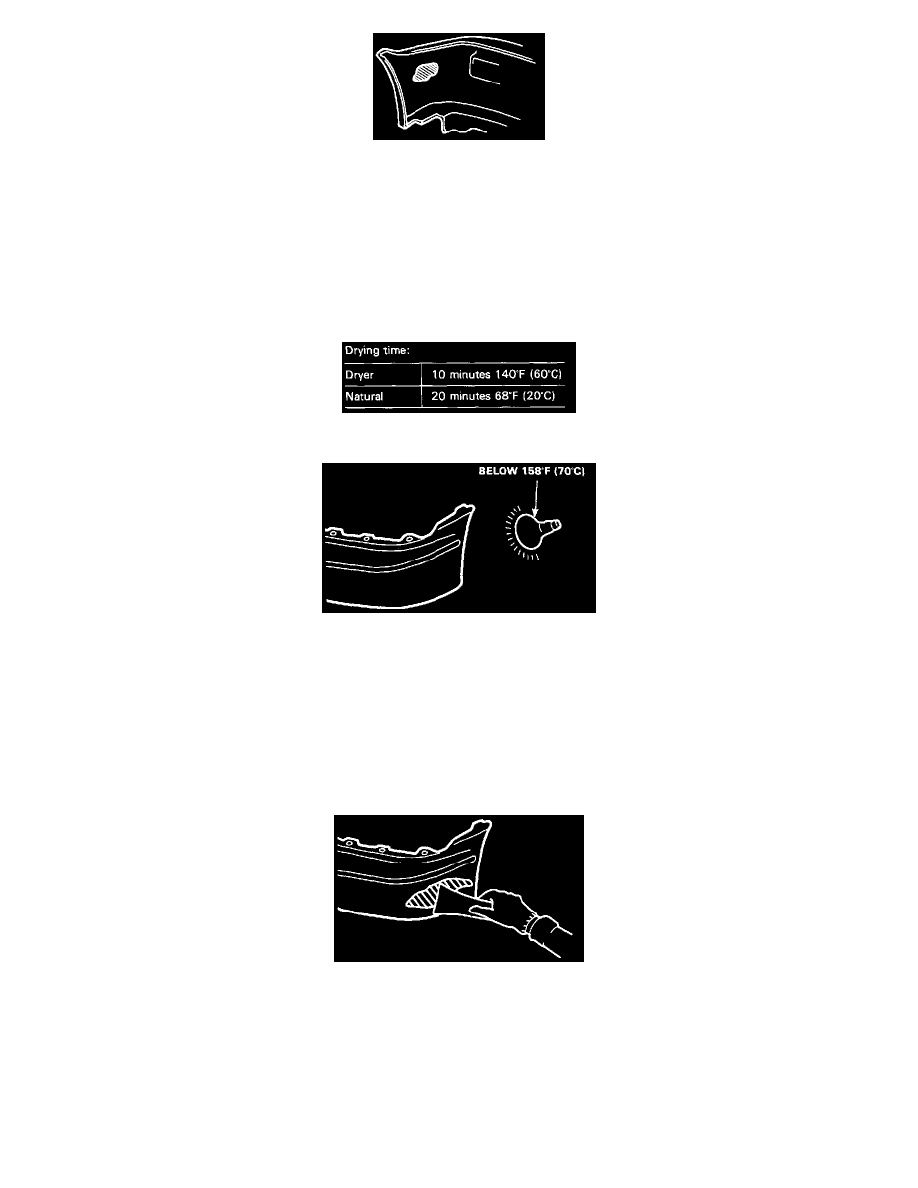3.2TL TYPE S V6-3.2L SOHC (2002)

NOTE:
-
Do not dilute the primer with thinner.
-
Warm the primer if the outside temperature is below 50 degrees F (10 degrees C).
-
Apply the primer to the back of the bumper if the damage is a tear or hole.
4. Drying bumper primer.
WARNING: Body parts being dried with an industrial dryer can get hot enough to cause injury. Do not touch parts being dried.
-
Dry the primer thoroughly with an infrared dryer or other dryer suitable for the purpose.
-
If the damage or groove is shallow, heat the entire surface evenly. Apply heat locally if the bumper is gouged or torn open.
NOTE:
-
Use a dryer whenever possible.
-
Do not allow temperature to exceed 158 degrees F (70 degrees C) or the bumper will deform
5. Apply filler (BOND QUICK MENDER.)
Mix the mender (A) into the hardener (B) at a ratio of 1 to 1, and stir until they are thoroughly mixed.
1. Apply the mixture over the damaged area with a putty knife using light pressure.
2. Even out the surface to match the contour of the bumper.
3. If there is a hole, cover it with a masking tape from the back, then apply the filler over the outside surface.
After the filler has been dried, remove the tape and apply filler to the side that was taped.
NOTE: Apply filler so it extends over more than the damaged area.
